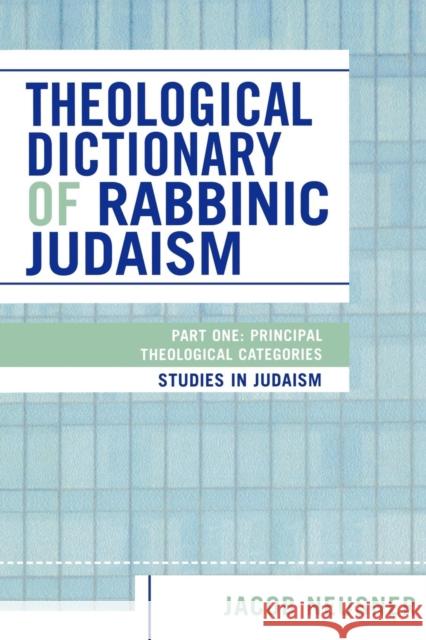Theological Dictionary of Rabbinic Judaism: Part One: Principal Theological Categories » książka
Theological Dictionary of Rabbinic Judaism: Part One: Principal Theological Categories
ISBN-13: 9780761830290 / Angielski / Miękka / 2005 / 312 str.
Rabbinic theological language has made possible a vast range of discourse, on many subjects over long spans of recorded time and in diverse cultural settings. This theological dictionary defines the principal theological usages of Rabbinic Judaism as set forth in the Rabbinic canon of late antiquity, Mishnah, Talmuds, and Midrash-compilations. It systematically lays 1] the theological categories that are native to those writings; 2] cogent statements that can be made with them; 3] coherent propositions that those statements set forth and (within their own terms and framework) logically demonstrate as true and self-evident, both. Volume One of this dictionary covers vocabulary that permits the classification of religious knowledge and experience, and the organization and categorization of those data into intelligible and cogent sense-units. Volume Two shows how these classifications combine and recombine in sentences. We may deem these rules of theological discourse concerning religious experience to be the counterpart of syntax which words combine (or do not combine) with which other words, in what inflection or signaled relationship, and why. Volume Three shows how the theology accomplishes its goals of analysis, explanation, and anticipation in order to make sense of and impose meaning upon a subject. That marks the point at which constructive theology commences and systematic theology will find its language.











